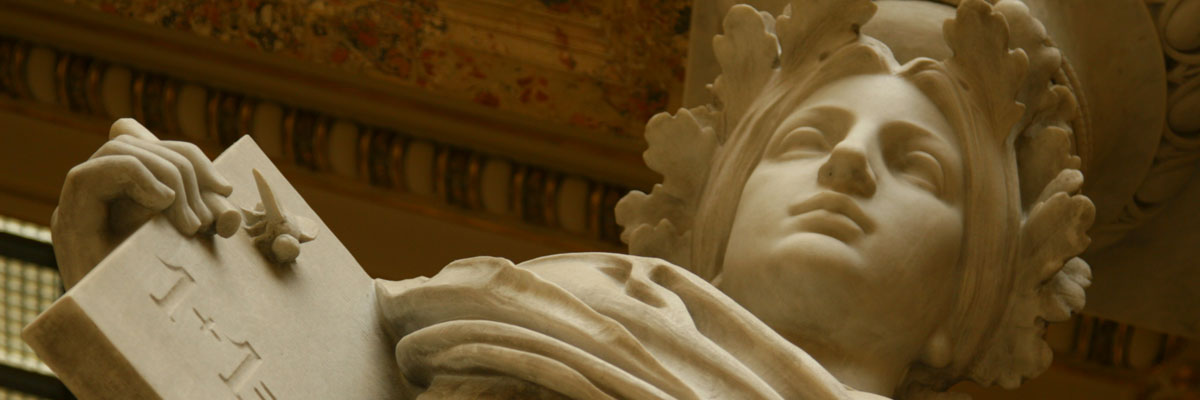
News archive
Search
Selected range: all newsHe has helped Czech researchers develop innovative methodological approaches as well as ecosystem experiments. For this and many other contributions to science, Austrian bioclimatologist and IPCC member Professor Christian Körner has received the Gregor Johann Mendel Honorary Medal for Merit in the Biological Sciences. On behalf of the Czech Academy of Sciences, the medal was awarded by CAS Vice President Zdeněk Havlas and Michal Marek, the director of the Global Change Research Institute of the CAS.
Greenhouse gases are an unwanted byproduct of industrial activity, resulting in global warming. But what if they could be effectively captured and actually utilised? Research by an enthusiastic young scientist, Eva Krupičková Pluhařová from the J. Heyrovský Institute of Physical Chemistry of the CAS, is contributing to the development of a catalyst for converting carbon dioxide into useful substances. An interview with her was published in the CAS magazine AΩ / Věda pro každého and can be read in English below.
Energy prices have been afflicting Europe throughout the year, and the unprecedented situation has also affected the Czech Academy of Sciences (CAS). In the November issue of our Academic bulletin e-magazine, directors of the CAS institutes detail how they have been coping with the energy crisis.
In the light of the energy crisis, planning the 2023 budget of the Czech Academy of Sciences proved to be a challenge. The 60th session of the Academy Assembly of the CAS tackled issues related to science and research funding when energy costs are currently on the rise. The Assembly took place at the National House Vinohrady in Prague on 13 December 2022.
The empirical data of a team of Czech researchers shows that a large part of the public has misconceptions about doctors' views on COVID-19 vaccination. Although the vast majority of physicians trust and support the vaccines, there is a common belief among the public that doctors' opinions are split roughly 50–50. Informing the public of the broad consensus of the doctors' opinions has persistently increased vaccination rates and has played an important role in the fight against the COVID-19 pandemic. The research findings were published by one of the world's most prestigious scientific journals, Nature.
Science is not just about lab coats, long equations, complex graphs, and detailed studies. It can also give rise to unique moments and unsuspected beauty. The Czech Academy of Sciences employees captured the aesthetics of science in their photos and videos as part of the in-house Photogenic Science contest. The winning entries are now on display at the CAS headquarters on Národní Street in Prague, where visitors can behold the captivating world of research at the Věda fotogenická (Photogenic Science) exhibition.
In light of the war in Ukraine, people in the Czech Republic are worried about the deterioration of their economic situation and do not harbour any hope that the crisis could make them stronger. At the same time, however, they consider themselves as being well-off and feel safe. A completely different set of results arose from an international comparative public survey conducted in Ukraine, but also in Israel, Estonia, and Georgia. At the Facets of Resilience conference on 22 November 2022, philosopher Alice Koubová presented the results of the Czech part of the survey, while the international comparison was provided by Shaul Kimhi from Tel Aviv University.
Photovoltaics, the conversion of sunlight into electricity, is currently one of the most sought-after renewable energy resources. However, around 97% of solar cells are imported from Asia, especially China. The PILATUS project, led by Martin Ledinský’s research team from the Institute of Physics of the CAS, is aimed at changing this situation. The plan is to install production lines for innovative silicon solar panels in Europe.
Why are populist parties thriving in Central and Eastern Europe today? What occupies the everyday thoughts of people inhabiting the border regions of Silesia or Galicia? Social anthropologist Johana Wyss from the Institute of Ethnology of the CAS will be exploring these issues with the help of a European Research Council (ERC) Starting Grant of almost 37 million CZK (1.5 million EUR). Johana Wyss is the seventh woman to join the ranks of 54 elite Czech scientists and scholars who have received the most prestigious European grant to date.
It begins with a discovery, it ends with its application in practice and a benefit to society. On the crossroads leading to patents and inventions stands CeTTAV, the Technology Transfer Centre of the CAS, offering guidance to CAS institutes. In an interview for the October issue of AB / Academic bulletin, Martin Smekal, head of CeTTAV, described how to support knowledge and technology transfer at the Czech Academy of Sciences.
The Czech Academy of Sciences (the CAS)
The mission of the CAS
The primary mission of the CAS is to conduct research in a broad spectrum of natural, technical and social sciences as well as humanities. This research aims to advance progress of scientific knowledge at the international level, considering, however, the specific needs of the Czech society and the national culture.
President of the CAS
Prof. Eva Zažímalová has started her second term of office in May 2021. She is a respected scientist, and a Professor of Plant Anatomy and Physiology.
She is also a part of GCSA of the EU.









